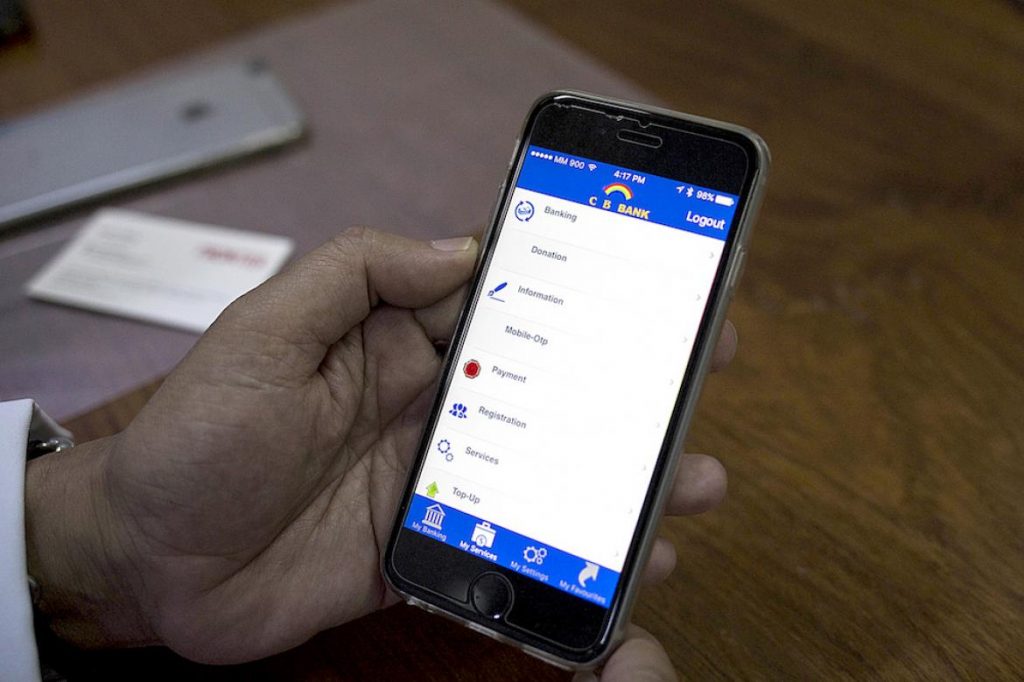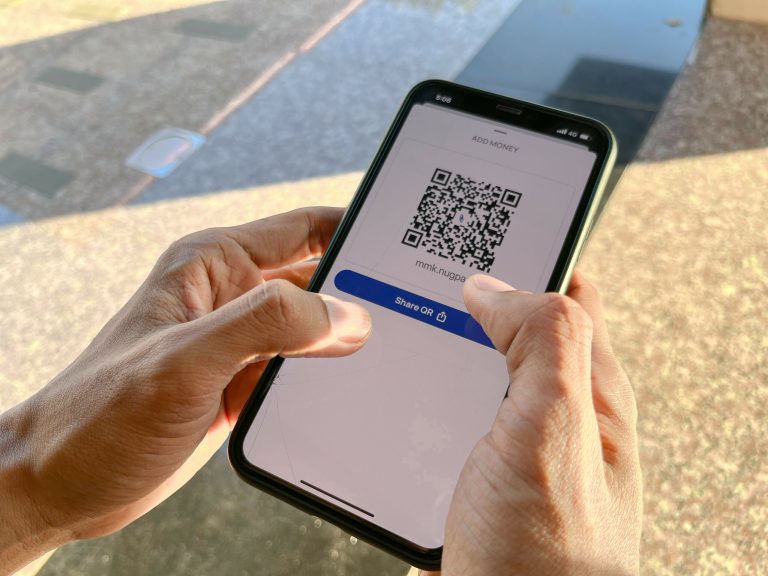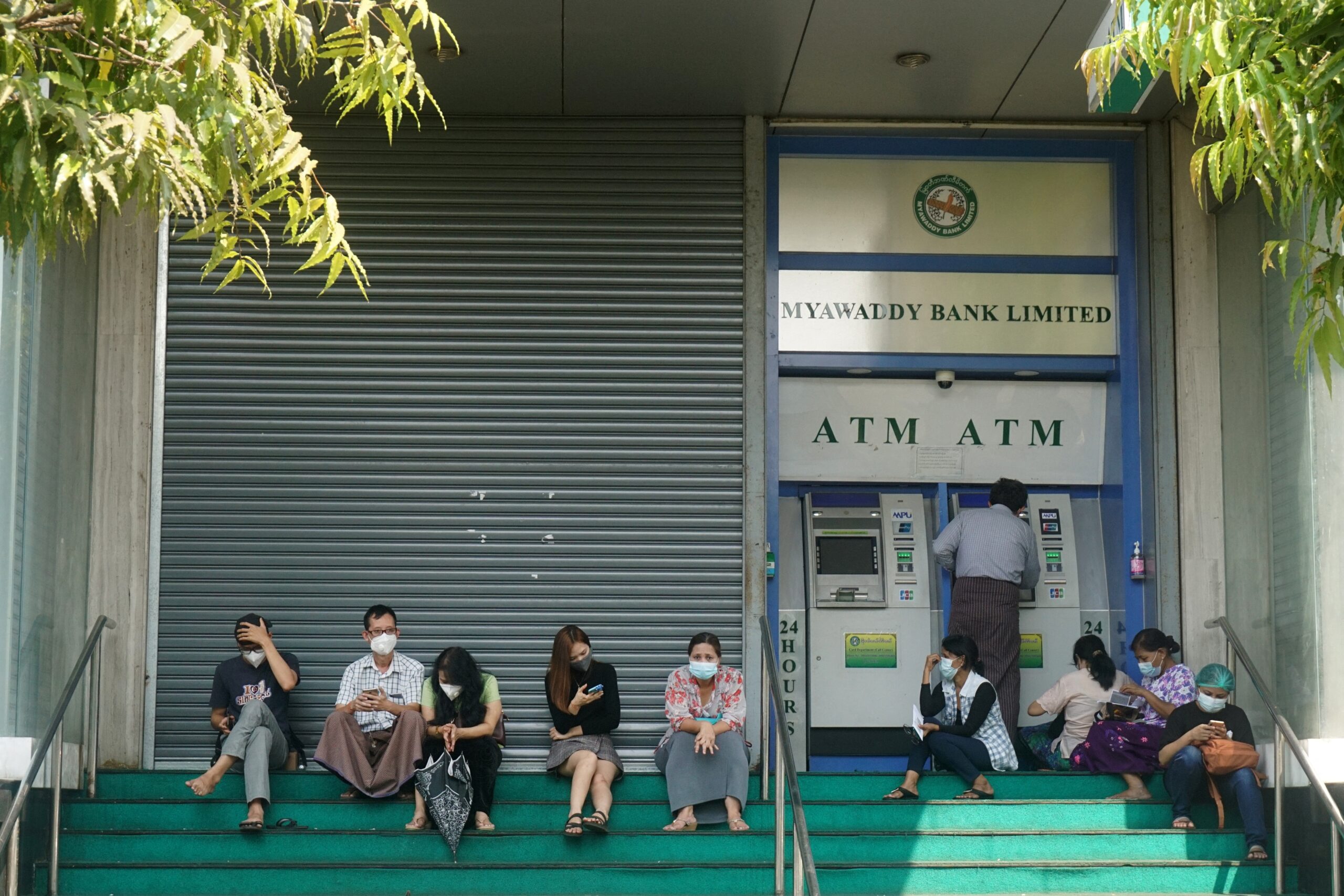New technologies – mainly built around the smartphone – are set to dramatically reshape the banking landscape, bringing millions of new customers for those institutions that can best-position themselves to capture this market.
By PETER JANSSEN | FRONTIER
FEW countries seem better poised than Myanmar to benefit from FinTech – financial services using digital technologies such as mobile phones and the internet. After more than five decades of socialism and military rule, the country is woefully underbanked, with an estimated 10 percent of the population holding bank accounts. Myanmar has also become one of the world’s fastest growing markets for mobile phone users, going from less than 10 percent penetration at the end of 2013 to about 74 percent now. Of these, 80 percent are using smartphones.
“You couldn’t get an environment more conducive to it [FinTech], as long as it’s done properly,” said Mr Sean Turnell, a key economic advisor to the current government.
The rules are slowly falling into place. On March 30 the former government pushed through a Mobile Financial Services regulation enabling FinTech firms to apply to the Central Bank of Myanmar for permission to operate.
Although applications have been submitted, to date no one has received a registration certificate, as the FinTech licence is termed. It seems the central bank, which has 90 days to vet each FinTech business proposal, is taking a typically cautious approach to the sector – although this could be positive, given the need to build confidence around these new products. Nevertheless, there is a great deal of excitement around the potential of FinTech.
Support more independent journalism like this. Sign up to be a Frontier member.
“We have seen that the evangelistic fervour for mobile money seems to have replaced the evangelistic fervour previously reserved for microfinance,” Turnell, an economics professor at Macquarie University, noted at The Economist’s Myanmar Summit conference last month.
China has taken a relaxed approach to the advent of FinTech and as a result has seen enormous growth and widespread adoption but also has experienced several scandals involving Ponzi schemes and dubious business practices.
Recently, Chinese media reported that lenders on one peer-to-peer online service were demanding nude photos of young women as collateral, threatening to post them on the internet if they failed to repay their debts. Nothing like that has happened yet in Myanmar, but it could without careful supervision. Getting the balance of supervision and freedom to innovate right is at the heart of the challenge for the government and central bank.
“These are early days right now so it’s not on the radar but there gets to be a critical mass when it’s successful, and that’s when the bad guys start paying attention to you,” said Mr Tom Wills, director of Ontrack Advisory, a Singapore-based IT security provider. “And there will be fraud. Wherever there is money there is fraud, so its pretty easy to guarantee that will happen,” he said at a recent FinTech conference in Yangon.
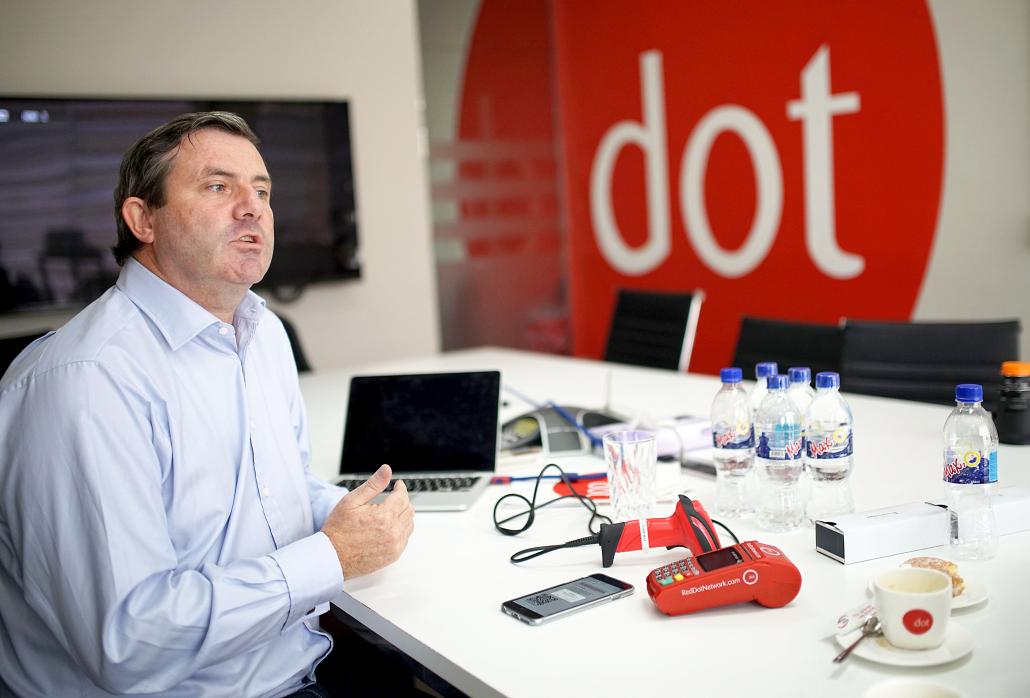
John Nagle, CEO of Red Dot network. (Supplied)
There are also worries that FinTech might adversely affect Myanmar’s nascent banking system, which is just beginning to find its feet. “Local banks are a little worried,” said U Aung Aung, IT adviser to Myanmar Citizens Bank. “FinTechs are lightweight. They don’t have a million-dollar network of branches to maintain, or hundreds of people to pay. FinTechs focus on one product and they are 24/7. And they don’t need a location. You just use your mobile phone.”
The tensions over FinTech resulted in repeated delays of the mobile money regulations. Debate raged for more than two years over whether FinTechs should be bank-led, always attached to a bank deposit, or allow for telco-led operations, sometimes with no bank connection, as well. The MFS proved to be remarkably liberal and pro-telco, although it’s not clear this approach is set in stone. “So our country is trying it out,” Aung Aung said. “But policies that are there can be changed,” he warned, highlighting a potential highly disruptive government risk to the FinTech segment.
Most FinTech operators say the banks have little to worry about. They consider the banks crucial partners for their services. “We basically partner with any bank that wants to use our services,” said Mr John Nagle, founder and CEO of Red Dot Network.
Red Dot has spent US$35 million placing 14,000 devices in retail outlets. Customers can now use the machines to top up their mobile phone credit and pay bills to certain vendors. “What we’re saying to the banks is our network is out there and it’s the largest network in the country. We sell everybody’s top-up and we’ve got 14,000 devices,” Nagle said.
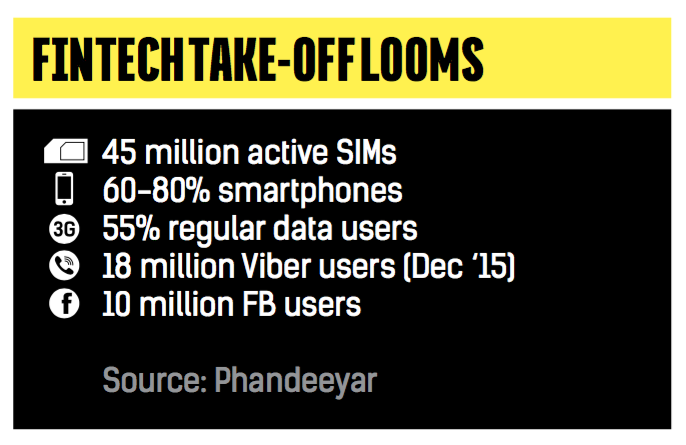
typeof=
In the future, banks and debit card providers like Myanmar Payment Union could use Red Dot devices to enable customers to make cash withdrawals or money transfers. Red Dot is already negotiating with a handful of Myanmar banks to use its network, Nagle said.
Myanmar’s larger private banks have been preparing for the FinTech challenge by investing heavily in their own IT systems and providing their own mobile-banking networks to customers. There are at least nine mobile bank networks already available, offering services such as online banking, top ups for mobile phones and bill payments. CB Bank, which bills itself as the “digital bank”, has a mobile phone app that allows customers to check their balance, transfer money between CB Bank accounts, and top up not only their phone credit but also a prepaid Visa or MasterCard. It could soon even allow customers to manage investments in the Yangon Stock Exchange.
Last September, Myanmar’s Kanbawza Group paid an undisclosed amount to Microsoft for systems and services that will enable subsidiary KBZ Bank to prepare for mobile banking.
“We are getting ready because if you can’t catch up with the technology how can you compete with the foreign banks?” said U Than Lwin, a senior consultant at KBZ. KBZ generally views FinTech operators as facilitators for its own mobile-banking services and welcomes them – a view in keeping with the political times. “I think the government is very keen to catch up with the advanced FinTech technology,” he said.
The new Financial Institutions Law, passed in January, is also encouraging the banks to digitise their systems, said U Chit Khine, chairman of Myanma Apex Bank, a medium-sized bank with 70 branches. “Compared with KBZ we are not so big, but under the new Financial Institutions Law we will be following international-style banking, so we will be going towards cashless and branchless banking. Our strategy is to use ICT [information and communications technology] to go towards cashless banking. We will not work with one telco, but with all of them.”
Yoma Bank has followed a different strategy, choosing to set up a joint venture with Norway’s Telenor – one of four telecom service operators in Myanmar – to offer top up and other financial services to Telenor’s 15 million subscribers through its Wave Money brand. On June 2, Yoma Bank had to reduce its share in the joint venture – Digital Myanmar Ltd – to 5 percent due to a clause in the FIL that limits banks from holding more than 5 percent of shares in a non-financial institution. But its equity was picked up by FMI, Yoma’s locally listed parent company. “The transaction is not expected to affect the operations of Wave Money, which will continue to leverage the expertise of Telenor and Yoma Bank,” said Mr Brad Jones, CEO of Wave Money.
Under the joint venture, Yoma will have access to 3000 outlets in Telenor’s 60,000-strong national agent network to help funnel transactions like deposits to the bank. On Telenor’s side, Yoma will provide the cash management and liquidity for Wave’s operations. “Globally, banks are doing this as a defensive measure,” said Mr Hal Bosher, Yoma’s CEO. “That is not the case here. We are doing it in a very constructive, pro-active way.”
Myanmar’s rapid acceptance of the smartphone has acted as a catalyst for FinTech, but it’s also a pressure point on the banks and the authorities. “Frankly, the Burmese are not going to wait. Ultimately what’s driving the change is the phone, because it has provided access and a demand … If the smartphone didn’t exist I’d say we have time,” Bosher said.
The grey area for FinTech is so-called KYC, or know-your-customer: the practice at banks of checking on clients and transactions to make sure they are not dealing with known criminals and money laundering activities. FinTechs are arguably less capable of carrying out such activities – and perhaps less worried about them since the transaction levels are generally small. But the central bank will need to consider all such threats seriously in what promises to become a more dynamic financial system.
“Myanmar is really a test case for FinTech,” said the Asian Development Bank’s Mr Tom Moyes, senior access-to-finance adviser to the Mekong Business Initiative. “That’s why we are focusing on helping the regulators understand it. They are literally swimming in the primordial ooze. They have to come out on land and evolve quickly because the banks are already out on land, sprouting legs and moving fast.”
This article originally appeared in Frontier Myanmar’s Banking and Finance special edition, published in July 2016.


